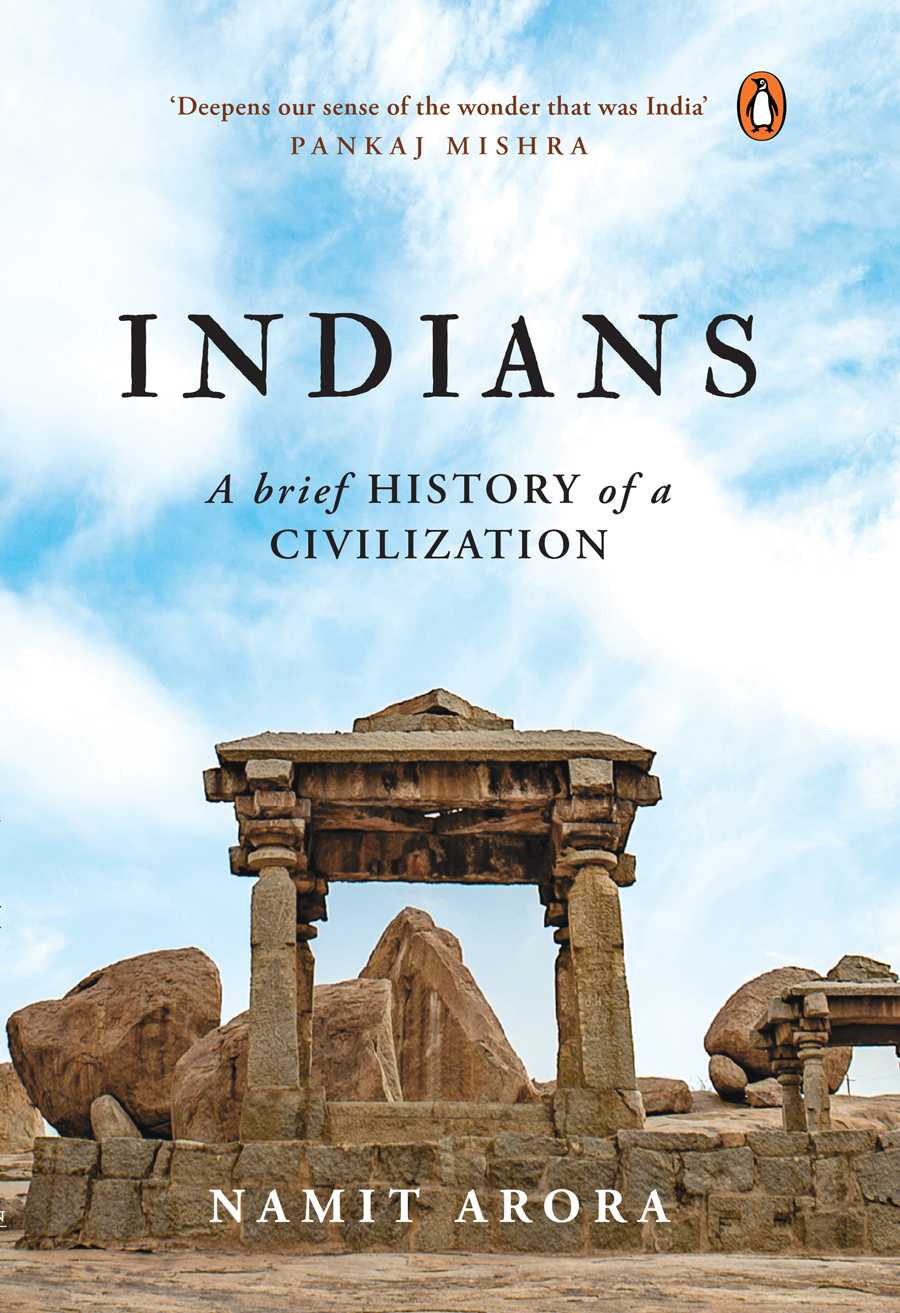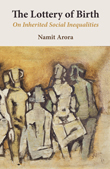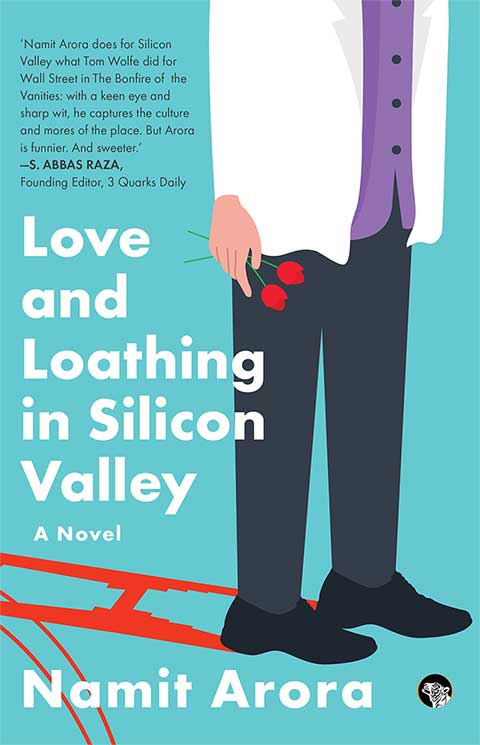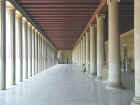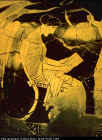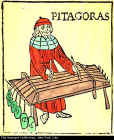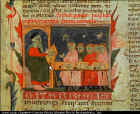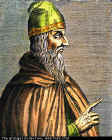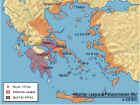| Index of articles from the Blog |
| Animals |
| Anthropology & Archaeology |
| Art & Cinema |
| Biography |
| Books & Authors |
| Culture |
| Economics |
| Environment |
| Fiction & Poetry |
| History |
| Humor |
| Justice |
| Philosophy |
| Photography |
| Politics |
| Religion |
| Science |
| Travel |
Books by
Books by
|
|
The Greeks paid collective homage via temples—a house of god with the deity's statue and treasures, not a place of worship with prayer-stools and shrines. For rituals there was the ubiquitous outdoor altar, and heroes like Heracles and Achilles had cults of their own. Sacrifices and processions, frequently sponsored by the state, were the most common religious activities. They were managed by priests who were secular officials of the state—laymen, not a hereditary caste as in Persia. Religion was inclusive, assimilating new deities at times, alongside Zeus et all.♣ It had no doctrine, no 'mother church', no concept of sin or morality, and therefore, no sacrilege, no guilt, no atonement. The stress was on this world rather than an after-life. As a result, Greek religion provided little moral guidance or discipline for everyday living—that came from their culture and the laws of the polis (city-state). |
Interestingly enough, the Ionian enlightenment (before Herodotus' time) had challenged the flawed morality of the gods—in sixth century BCE, Xenophanes of Colophon complained, 'Homer and Hesiod have attributed to the gods everything that is disgraceful and blameworthy among men: theft, adultery and deceit'. Plato too lamented the divine virtues embedded in Homeric poetry and 'that a man ought to regulate his life by following this poet.' § |
|
The Archaic age that preceded the Classical age was one of aristocratic tradition.♣ Early warring tribes of the region had lived off piracy—then considered a heroic thing to do—falling upon villages with no walls to protect them. Over time, these tribes began to group together for easier survival, built defenses, acquired settled lifestyles, fleets, and hereditary monarchies, applying themselves to the acquisition of property and wealth. 'The love of gain would reconcile the weaker to the dominion of the stronger, and the possession of resources enabled the more powerful to reduce the smaller towns to subjection.'♣ There was considerable uniformity in that aristocratic families everywhere monopolized the organs of decision making, warfare, and judicial procedures. Geography contributed to an uneven, disjointed development for centuries, a period we perceive only dimly, and which led to an elementary distinction between oligarchic and democratic principles. |
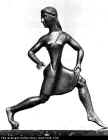 |
Early city-states evolved at Sparta and Athens. They offered local pride and a sense of identity. In Athens, in response to a tyranny in seventh century BCE, a stern law code was established by Draco. A few years later, after much aristocratic in-fighting, emerged a new leader, Solon, chosen by consensus and charged with the task of reform. He modified the law code to suit the aristocratic share-cropping society. In its concern for the weak, his code resembled Hummurabi's, the Babylonian monarch who lived a millennium earlier. But Solon's code was secular, Hummurabi acted in the name of the gods. Besides, the latter legislated for subjects of a king, the former laid down rules for the community to govern itself.♣ Aristotle later highlighted Solon's top three achievements: a general amnesty for debtors freeing them from enslavement, introduction of appeals to a popular tribunal, and the right of a third party to seek justice in court on behalf of an aggrieved person (the birth of the lawyer). |
|
Military and leadership positions now came to be tied to wealth in land—the right to own property was also an incentive to compete for more—a fundamental difference from Persia where all land ultimately belonged to the king. Over time, power devolved to smaller units of landowners and led to decision-making via representatives. Old style tyrannies, however, remained common elsewhere in Greece and which 'with their habits of providing simply for themselves, of looking solely to their personal comfort and family aggrandizement, made safety the great aim of their policy, and prevented anything great proceeding from them.'♣ With increasing rivalry between city-states, the leisured classes applied themselves to winning glory for themselves and their communities via chariot races and other competitions. Sun-lit skies and mild weather were ample encouragement for outdoor life. |
 |
|
§ While there were relatively few material or technological differences between the various peoples, enormous differences of culture and institutions had come about by the mid-fifth century.♣ Athens was a constitutional democracy and practiced justice by jury trials—law was the king, and all were equal subjects. The hereditary aristocratic entitlements of the past were undermined in this new age. The Athenian democracy was direct, not representative. Other than resident foreigners, slaves, and women, all adult males (20% of the total population) were members of the Assembly (i.e., citizens) from which a ruling Council was chosen by lot. The individual citizen, however, had no natural or inalienable rights to protect him from the virtually unlimited power of collective decision-making, even when in practice it chose to leave alone certain areas of private life. |
|
|
Athenian politicians never tired of praising 'the Athenian people' and their city, especially in times of war♣—its openness, equality of all citizens, meritocracy, unrivaled freedom—while owning slaves and domesticating their women, the hetairai or cultured concubines being the sole exception. The general quality of female social life in Athens was not much different from that of women in contemporary orthodox Islamic communities—restricted to the household and denied political equality—a good deal less free than in Sparta and Crete where they could also own property. Women were believed to be endowed with less reason than men and attitudes mixed fear of their irrational and passionate nature with a paternalistic urge to protect them from the public eye. Sexual double standards flourished. Families were nuclear but for men their male buddies were far more central to their lives. The rhetoric of democracy, freedom, and equality before the law also went hand in hand with slavery. Slaves were acquired through wars and in purpose were more like the servants of Victorian-era households but without wages or personal freedom— each family aspired to owning at least one—there were nearly as many slaves as citizens. In addition to being porter, nurse, cook, maid, and tutor, they accompanied soldiers on their campaigns. One searches for men who called for the abolition of slavery on moral grounds but one does not find them in ancient Greece. |
§ |
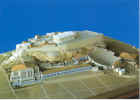 |
Athens had awe-inspiring temples, stoas, stately public edifices, with ever more ambitious conceptions—Phidias' Acropolis was the crowning achievement. Guilds of sculptors idealized youth and beauty through bronze and marble with increasing naturalism, some began to emphasize attitudes, feelings, kinetic motion. The state was the sole patron of the monumental arts and private palaces in Classical Athens are conspicuous by their absence. The artist was not the rebel, nor did he restlessly search for highly individual styles and conceptions to make a personal statement, or to shock his audience—it was for the philosophers and other public figures to question the values of society. The artist and his guild were to produce commissioned work according to the norms of public taste. Manual labor was despised.♣ Architecture followed mathematical rules and only grew bigger and more ornate—the Greeks didn't experiment with arches, vaults, or the dome— that had to wait for the Romans. |
|
As for other pursuits of mind, Anaxagoras, a philosopher-friend of Pericles, applied a new spirit of scientific inquiry to discover the true cause of eclipses. He envisioned the mind as the chief agent of order in the universe. He claimed the planets to be stones torn from the earth; later, he was prosecuted on a charge of impiety for asserting that the Sun too was an incandescent stone somewhat larger than the Peloponnese. Heraclitus reasoned that everything in the world is subject to perpetual change and decay caused by an inevitable clash of opposites: the dialectic. Pythagoras of Samos had established the Theory of Numbers and the mathematical basis of musical harmony. Parmenides of Elea argued that all change is illusory and that understanding of nature must come from reason rather than experience. Building upon Empedocles' theory of correspondence between the four basic elements (earth, fire, air, water) and the bodily humors, Hippocrates was soon to inject empiricism into the study of medicine— not for the next two thousand years were major breakthroughs realized. Democritus of Abdera was soon to propose that all physical matter can be explained in terms of random collisions of the smallest particles, the atoma. |
|
However, none of these and later scientific insights progressed into technological innovation or greater productivity at any time in ancient Greece. The basic Greek technologies in agriculture, stone, clay and metal-working were all inherited from their Mycenaean predecessors and from the older civilizations of the Near East, a notable exception being the technology of ship construction. By and large, understanding of nature was deemed a sufficient end. Knowledge was not progressive or cumulative for there was no 'scientific method'—the Greeks made random, though inspired, forays into science.♣ |
|
Aeschylus, Sophocles and Euripides had become household names in the performing arts. Annual competitions were held during the Springtime festival, Dionysia, to a packed audience of thousands. Common themes included the exploration of moral conflict, choice, destiny and behavior under divine power, psychological drama, political satires, tragedies and comedies inspired by Homer and other legends, not to mention raucous humor and sexual innuendoes. |
|
|
All three playwrights were remarkably prolific—Sophocles wrote 120 plays, Aeschylus 90, Euripides 92. Aeschylus had fought the Persians at Marathon, Salamis and Artemesium. His play Persians, which commemorates the Greek victory at Salamis, later won the first prize at the Dionysia, as did many others. Sophocles, at age sixteen (in 480 BCE), was chosen for his physical beauty and athletic prowess to lead the paean celebrating the same victory. Son of a wealthy arms manufacturer, he later served as a treasurer responsible for managing the tribute money extorted from Athens' colonies, a part of which financed the construction of the Acropolis. He was also one of 10 strategoi (military commanders) and one of 10 commissioners entrusted with Athens' financial and domestic recovery after their Sicilian misadventure. Predictably enough, he portrayed Athens in fond terms and won most frequently at the Dionysia. |
|
Euripides, by contrast, led a largely private life and remained passionately interested in ideas which brought him restlessness rather then conviction. He is said to have associated with Protagoras, Anaxagoras, and other Sophists and philosopher-scientists. 'There's a strong strain of skepticism in his writing ... increasing doubt and uncertainty pervade his plays,' particularly those written towards the close of the Peloponnesian war.♣ Disappointed by the reception of his plays at Athens, and perhaps due to other disenchantments, he migrated to Macedonia in old age; he died there before the final defeat of Athens. |
|
§ |
|
|
Meanwhile, Socrates declared that the unexamined life is not worth living, insisting on self-knowledge and the supremacy of the intellect—one must work hard to discover the right and wrong. With Socrates, the central problem of Western philosophy shifted from cosmology to the formulation of a rule of life through understanding, to a practical use of reason. As the Apology relates, Socrates advocated the tending of one's soul, to make it as good as possible—and not to ruin one's life by putting care of the body and possessions before care for the soul.♣ |
 |
Socrates was no ascetic in denial but an urbane intellectual of aristocratic lineage, a man of the world, famed for his practical wisdom, modesty, self-control, generosity, alertness, and integrity. 'There was no complacent self-righteousness of the Pharisee nor the angry bitterness of the satirist in his attitude toward the follies or even the crimes of his fellowmen. It was his deep and lifelong conviction that the improvement not only of himself but also of his countrymen was a task laid upon him by his God, not to be executed with a scowling face and an upbraiding voice. He frequented the society of promising young men, and talked freely to politicians, poets, and artisans about their various callings, their notions of right and wrong, the matters of familiar interest to them.'♣ Socrates, the story goes, when pronounced the wisest of men by the oracle at Delphi, set about to investigate the truth of this claim. He interrogated poets, craftsmen, politicians and other 'wise men.' After investigating, he concluded: |
|
|
Socrates however was no democrat—the radical vice of democracy, he believed, is that of putting society in the hands of men without true insight and with no adequate expert knowledge. His other criticism was that though in some departments democracy takes the advice of a qualified expert, on questions of morality and justice it assigns equal value to all opinions. Herodotus knew many, possibly most, of these prominent men. |
|
§ |
|
|
The average Athenian was self-reliant, instinctively praised much-exemplified community ideals of virtue and goodness, and was easily moved to tender feelings. He belonged to multiple social groups to which he had many obligations. He was also pious and superstitious—a citizen could be penalized for not honoring the gods of the city. Omens had significance and oracles were routinely consulted. Even in late fifth century the conservative military general Nicias made disastrous tactical moves in Sicily based on a lunar eclipse.♣ In spite of a relatively high degree of personal freedom, the notion of individual autonomy apart from the twin pillars of community and polis, is absent from Greek thought. Freedom held meaning and sought expression in a public life—the modern artist, seeking redemption, solitary pleasure or glory through a brave new work of the imagination and with no explicitly larger purpose beyond, would have been quite alien to the Greeks. ♣ |
 |
 |
The
liberal-popular and the conservative-aristocratic became the two
dominant factions in Athenian democracy. Of the former, Pericles, a
blue-blood, outwardly 'espoused the popular cause and chose the side of
the mass of poor people rather than that of the rich few, despite the
fact that his own nature . was far from being sympathetic to the common
people.'♣ Mixing
self-possessed ambition, moderation, lofty principles, dignified
oratory, and real-politik, he democratically appropriated enormous
powers, indulging the citizens now and again in their whimsies,
sponsoring lavish festivities during the Panathanea, and big public
spending projects. Representing the latter faction, the military general
Cimon, a seemingly generous and affable aristocrat, lavished his
considerable private bounty acquired in overseas campaigns on his
countrymen, offering free meals, cash, and clothing to the needy, and on
beautifying the agora. The popular assembly elected ten generals equal
in stature—mostly men of independent means and renown, and responsible
directly to the people. They courted mass appeal via populist deeds and
used oratory as if to exemplify: I speak, therefore, I am.
|
A striking feature of classical Greek society, even in the most democratic of communities, is its considerable aristocratic leaven and which largely produced the classical Greek high culture. The spirit of the agon or competition, fame, glory, honor and the desire to surpass all others were values enshrined even in the Homeric poems, particularly the Iliad. 'It was universally the case, and universally accepted as 'natural', that the members of the community were unequal in resources, skills and style of life ... In this society of unequals, the elites who dominated all activities, political, military, athletic and cultural, constituted a single group ... they all came from the same minority of wealthier families, barring the inevitable exceptions ... the impact and manipulation of ideas and values in philosophy and science, literature and art, all of them propounded and developed within the elite circle ... these creators of Greek high culture, in every field, were professionals; they had the necessary training and they devoted themselves more or less full-time to [their pursuits].'♣ The ordinary population appreciated not much more than the more visible aspects of high culture, particularly the visual arts and athletics. |
|
|
In Herodotus' prime, Athens was the dominant naval and imperial power with colonies all over the map. It offered military protection to members of the Athenian (Delian) league in exchange for tributes, euphemistically called contributions♣ —other euphemisms include protection for military occupation, prison was dwelling, an Athenian military defeat was to have a misfortune. Athenian citizens were granted homesteads in the colonies, cementing further their hold on them and squelching any moral objection from the participants. Many of the colonized though, even when they resented the politics of Athens, found its popular culture irresistible. But unlike the Roman empire, the benefits of citizenship were restricted to the progeny of Athenian citizens, exacerbating further the psychological gap between the rulers and the ruled. The professed objective of Athenian foreign policy was to aggressively promote democracies abroad in direct opposition to the more muted Spartan confederacy's preference for oligarchies. Exceptions to high principle were frequently made for illiberal ends. At times, foreign territory was grabbed in the name of goddess Athena herself. |
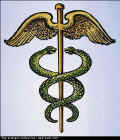 |
 |
In reality, wars were used to acquire wealth, to keep the economy humming, to flex their muscle of growing power, and to distract citizens from domestic issues. Classical Athens soon turned into a wartime economy. Special interest groups in popular assemblies cloaked their impassioned speeches in the rhetoric of national interest and glory—deemed acceptable grounds for hostile military action even when others' legitimate rights were mauled. Athens began asserting itself in all manner of allied causes and interfered in other nations' internal matters. It had shrewd orators—demagogues, idealists, pragmatists, with the ability to manipulate public opinion to catastrophic ends—illustrated by the Mitylene debate when the popular assembly, following the frenzied instigation of the demagogue Cleon, voted to condemn all men in the rebellious colony to death to set an example.♣ Leaders also weathered the fickle wrath of popular sentiment—banished now, back in favor again. Even their most celebrated Persian war hero, Themistocles, late in his life, was forced to take refuge in Xerxes' court. In late fifth century, Alcibiades, playboy-aristocrat, star athlete, ambitious politician and general, was warmly embraced after falling out with the public and, in retaliation, colluding with the Spartans to bring about the defeat of Nicias' Athenians in Sicily. |
 |
Thucydides attributes this speech to a Corinthian orator addressing the Spartans after a sedition in Corcyra ♣ in 427 BCE, probably soon after Herodotus' death. Exasperated and bitter at the growing arrogance of Athens, the orator uses forceful words to rouse their less politically savvy neighbors by bluntly contrasting their values with those of the Athenians. |
|
|
|
§
Classical Athenian
thinkers appear striking in their effusive energy, flair, and optimism. The
goal of human striving, they believed, was understanding that led to
personal virtue and political action. With the premise that men are
essentially unequal in moral caliber, they pondered over 'the ideal form of
government', 'justice', and 'civic virtue'—grand narratives with
unequivocal answers, they believed, within the reach of reason. They
regarded the framework of the polis as an indispensable agency to human
happiness. Not constrained by inflexible religious dogma—religion and
state didn't mingle—their politics was built on a foundation of equality,
citizenship, and public discourse. The right to own property (unlike in
Persia) and the cultural imperatives of success and achievement created the
ideal conditions for initiative, curiosity, and ambition. It fostered
self-reliance and creativity. Reward was individual and immediate and came
in the form of fame and glory. Competitive self-interest became a truism as
it didn't in any other society until two thousand years later.
|
|
 |
As it turned out, Athenian self-interest sought expression in a visible public life. The pursuit of selfish gain devoid of at least a seeming public purpose was sneered at—not because of religion but culture. Their able minds were not lured by profit via trade, industry, and higher productivity.♣ Still, even this proved to be no insurance against corruption, greed, and abuse of power. And they paid for it in the end as their ambitious yahoos hankering after fame and glory took control. In modern times, competitive self-interest was to embrace the pursuit of private gain as a not-unworthy end in itself, with the belief that wider benefit would generally accrue from it—effectively raising the stakes for humanity. Socrates most likely would have been appalled (if not also amused). |
|
What followed
the classical age was fragmentation—of polity and national feeling—
the Peloponnesian war threw Hellas into crisis and turmoil.♣
The institutions of the polis were negated by the Macedonian monarchy of
Philip and Alexander; emphasis
shifted from political to other aspects of moral philosophy. In came the
winding-down of the Hellenistic age, a withdrawal into the inner self,
the soul-centered Stoics, Cynics, Epicureans—wisdom calling for
humility, kindness, and detachment from the transient material world
with its vain constructs—virtue born of reflection was good, ambition
and ego unworthy, passion-filled activism dubious.♣
While advocating reason and the pursuit of knowledge, its leading
exponents strongly cautioned against excesses of human nature that
promote disquietude and anxiety. The classical age was followed by an
age of personal reckoning.♣ |
 |
|
The War: Previous |
Next: The Persians |
Designed in collaboration with Vitalect, Inc. All rights reserved. |
|





